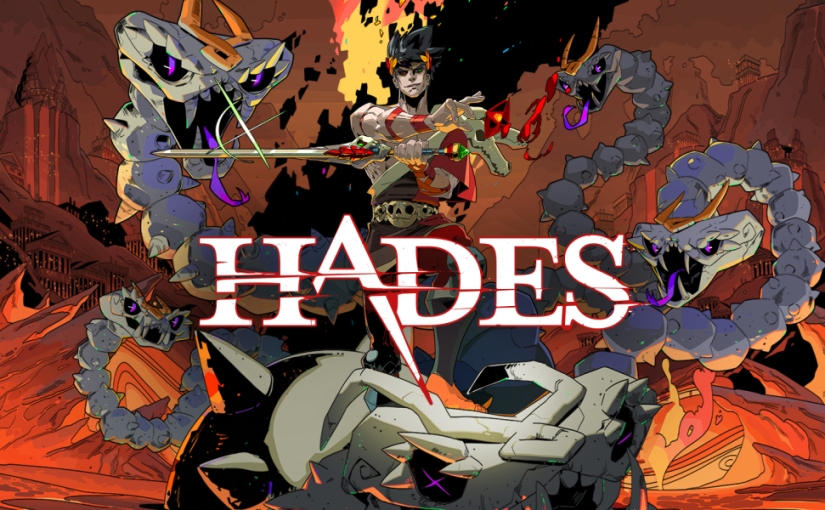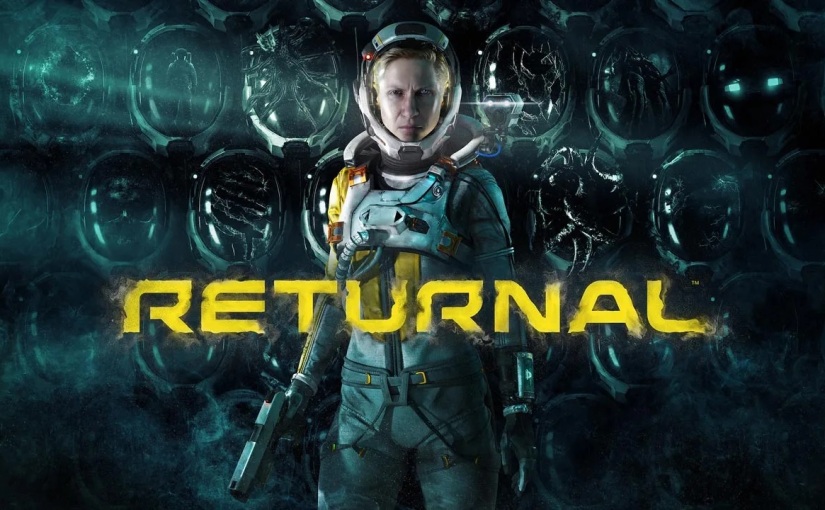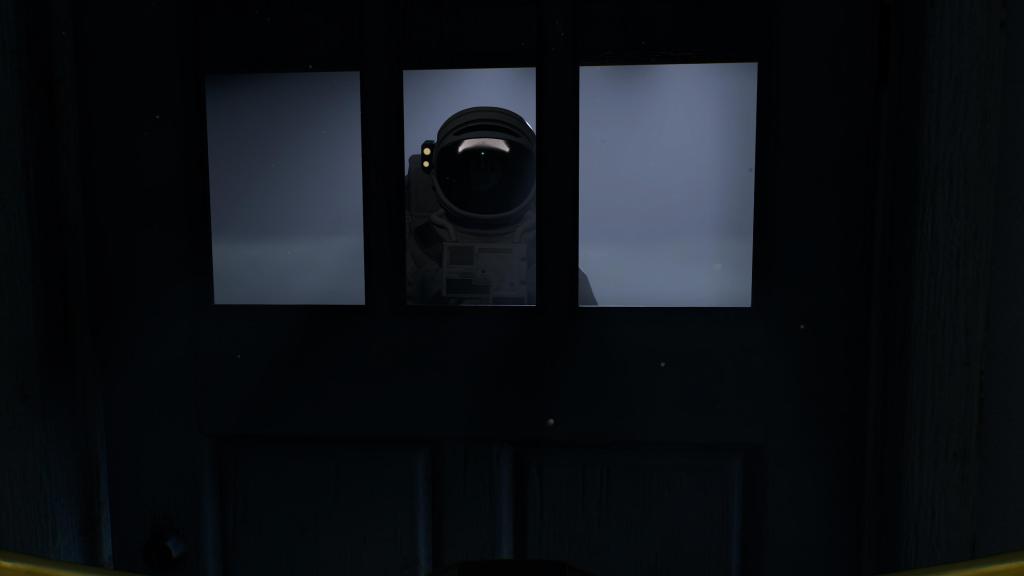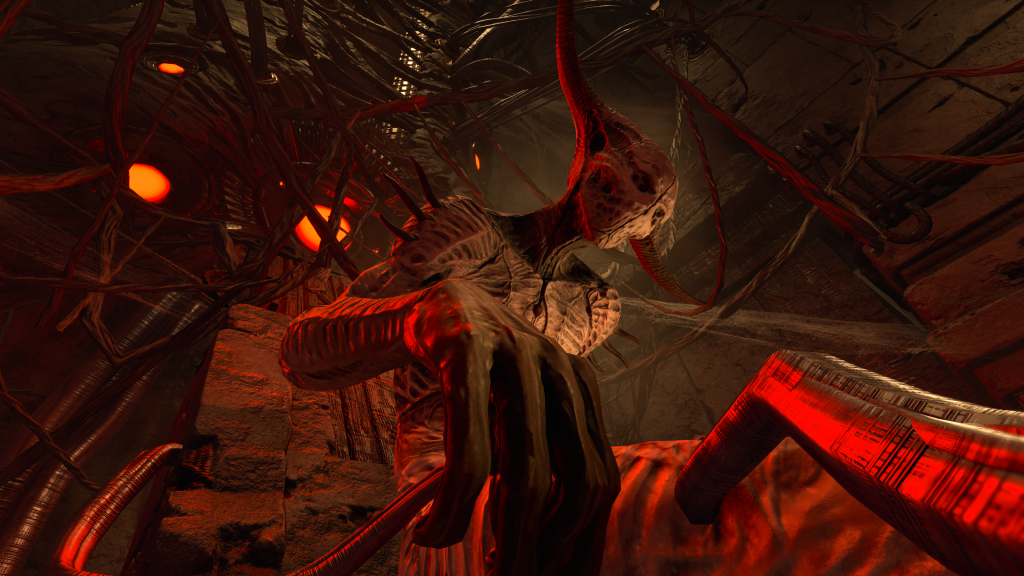I have never really been a fan of the rogue-like genre of games. However, upon seeing the renowned praise Hades received when it released for Nintendo Switch and PC, my interest was peaked. That being said, I waited for a Playstation release, mainly due to trophies being a huge factor in me maintaining my interest in a game like this that will constantly reset. Regardless, I picked up Hades for Playstation 5 in August and here is what I thought of one of 2020’s most critically acclaimed games.
Story –
If I speak truly, I never really showed an interest in the story of Hades. I found myself always listening in on the dialogue options, but constantly zoning out after a while. This is understandable though, as I think in most games of this nature, story is never really the first point to move toward.
However, it is quite disappointing that a story to become infatuated with wasn’t spawned out of Greek mythology, as I think that is a field that a lot of creativity can spawn from. I just personally never really took any interest in the story premise of escaping your father’s torment in an attempt to reunite the Greek Gods as a family.
Characters –
Despite the story not really doing much for me, the characters were always well portrayed. They are light-hearted, cracking jokes with Zagreus. There is very in-depth index’s dedicated to every character, weapon, item and location in the game, ever growing with more information on each aspect. On top of that, each character does a good job in portraying their relationships to each-other in the ‘reality’ of Greek mythology.

Voice-Acting –
Although characters are well portrayed, I have to admit, Greek mythology and voice acting must be a match made in hell (no pun intended). In the last twelve months, I have now witnessed three Greek mythological horror shows when it comes to voice acting. Those being, Blood of Zeus on Netflix, Immortals: Fenyx Rising, and now Hades. That isn’t to say there isn’t some good performances, but truly I do not know what it is about Greek mythology and annoying voices.
I think it must come down to the English-ness of the lines. There is nothing that makes my skin crawl more than hearing Zagreus address everyone as ‘mate’, whilst a lot of the other characters seem to just sound like similar versions of each other. The voice acting in this game and in Greek mythology-themed forms of media just do not seem to do it for me whatsoever. They give off the same effect as when playing Final Fantasy. That being, enjoying the game, only to have the moment ruined by the generic ‘anime sounds’. Greek mythological media seems to be the anime sounds of the West.
Rogue-Like –
I already said to begin with that these genre of games are not my cup of tea. I find them tedious and repetitive, never really feeling motivation to slog through the repetition. However, that being said, Hades is an outlier in some ways. Hades provided me with a game-play loop that was ever-changing enough to keep me coming back through the varying sets you can run through each escape attempt.

As well as this, the combat and general game-play is something of major importance to me in these games. Similarly to what I said in my review of Returnal, its biggest achievement was the fluidity and freshness of its gameplay. Hades has this also, and is arguably much better than Returnal in this area. Hades provides enough of a mix and differentiation between escapes that every re-try is just as intense as the last, which is accomplished mainly through the variety of temporary upgrades and boons that can be mixed and matched.

One thing that a lot of rogue-like games ignore, for me, is the importance of permanent upgrades. That ability to constantly feel like your progression is not left purely down to your playing performance in comparison to the last time is massive for me. Hades sorts this issue I have with games like Returnal through the use of the mirror in Zagreus’ room. This allows for permanent upgrades to provide clear progression going into each escape attempt for the player. It can provide something to save up toward, something that you know will definitely give you an extra edge once you achieve it. Permanent upgrades create sub-goals to work toward separate from the main goal of escaping.
Music –
Hades has a very distinct and stylised track fitted to the locations and scenarios of the game, however, on a personal note, I never really found any of the tracks throughout the game to be that memorable or adrenaline inducing. This isn’t to say there was a lack of care in terms of musical output, there obviously was, but just on a personal level nothing really connected with me unfortunately. I think this is just how it is with music, you either connect or you don’t.
Visuals –
As someone who was looking from the outside-in at Hades when it initially released on Switch, I was deterred. This was not because of a lack of visual quality, nor was it because of the art-style. However, it was because of the connotation I had subconsciously built up against top-down dungeon-crawlers or MMO visually styled games. Hades has this style, although more vibrantly distinct. This initially deterred me as I had not bothered to do my own research, and instead assumed purely by the style that it would be the same type of game as the likes of Diablo. In some ways, it is similar, but in almost every other way, it is different.

Away from these assumptions, Hades has a very distinct style. Areas are vibrant and uniquely stylised. All character sprites and models are crisp and excellently portrayed. For what Supergiant went for, I genuinely do not see how else this game could visually be any better.

Replay-Value –
I think one of the main aspects of a game of this genre is the replayability. Hades masters this. When playing Hades, or not playing Hades, you’ll find yourself contemplating whether or not you can fit in one more run, or adjust to a new style of play in the next run. Even if you beat a boss, you can try beat it again with a different weapon, or set-up. The fluidity of the game-play is what makes this so easy, it allows for a non-tedious flow between escape attempts.
Thus, I would argue that Hades probably has the most replay-value of any rogue-like that I have played, not that I’ve played many, but still. A combination of addictiveness, fluidity of game-play and variations in escape combinations creates a game where new ways of playing are always encouraged.
Conclusion –
Hades is a game that surprised me, as one of the best of the few rogue-like games I have played. The general combat and game-play create an addictive experience, with permanent upgrades ensuring that it never really feels up to performance, and that you will always be working towards being permanently better in the next escape attempt. However, a lack of impact in terms of the track means no area or moments in the game really made much of an impact to me. With that, often cringe-worthy voice-acting combined with a story that sort-of takes a back peddle to the general game-play, meant that I generally found it being a nuisance to be interrupted by dialogue and ‘story’.
Despite these complaints, Hades was an enjoyable and addictive game, and one that is great value for the cheap price that it currently is on PS5.
Final Score – 7/10







